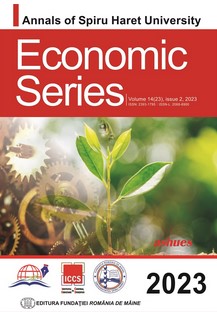THE ROLE OF WORKPLACE FRIENDSHIP IN CULTURAL INTELLIGENCE AND QUALITY OF WORK-LIFE: A CROSS-SECTIONAL STUDY
THE ROLE OF WORKPLACE FRIENDSHIP IN CULTURAL INTELLIGENCE AND QUALITY OF WORK-LIFE: A CROSS-SECTIONAL STUDY
Author(s): Chiyem Lucky NWANZU, Sunday Samson BABALOLASubject(s): Organizational Psychology, Management and complex organizations, Human Resources in Economy
Published by: Editura Fundaţiei România de Mâine
Keywords: cultural intelligence; workplace friendship; quality work-life; social capital theory; public organisations employees;
Summary/Abstract: The purpose of this study is to examine the effect of cultural intelligence (CI) and workplace friendship (WPF) on the quality of work-life (QWL) of individual workers and to examine whether WPF mediates the relationship between CI and QWL between employees of the same nationality, but of different ethnic groups working in government-owned organisations. A cross-sectional study was conducted among 161 employees using self-report measures. Data analysis was performed using two statistical procedures (the Harman single factor test and the correlation matrix) to assess the presence of a common-method variance (CMV) bias in the data collected for this study. Theoretical propositions and empirical observations offered plausible explanations for WPF's mediating role in the CI-QWL relationship. The present study confirms the reliability and, to some extent, the validity of the measures in a developing economy context. However, this study also builds empirical evidence that age and gender are fewer differentiating factors in employees' work attitudes and behaviour.
Journal: Annals of Spiru Haret University. Economic Series
- Issue Year: 23/2023
- Issue No: 1
- Page Range: 186-208
- Page Count: 23
- Language: English

